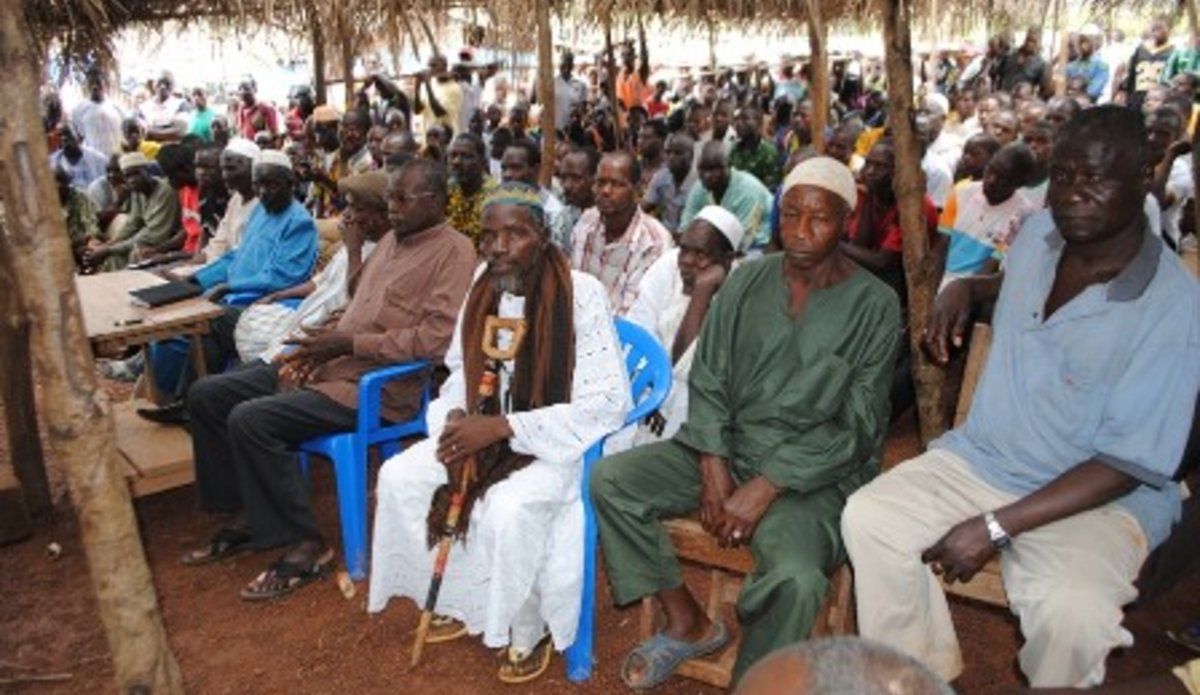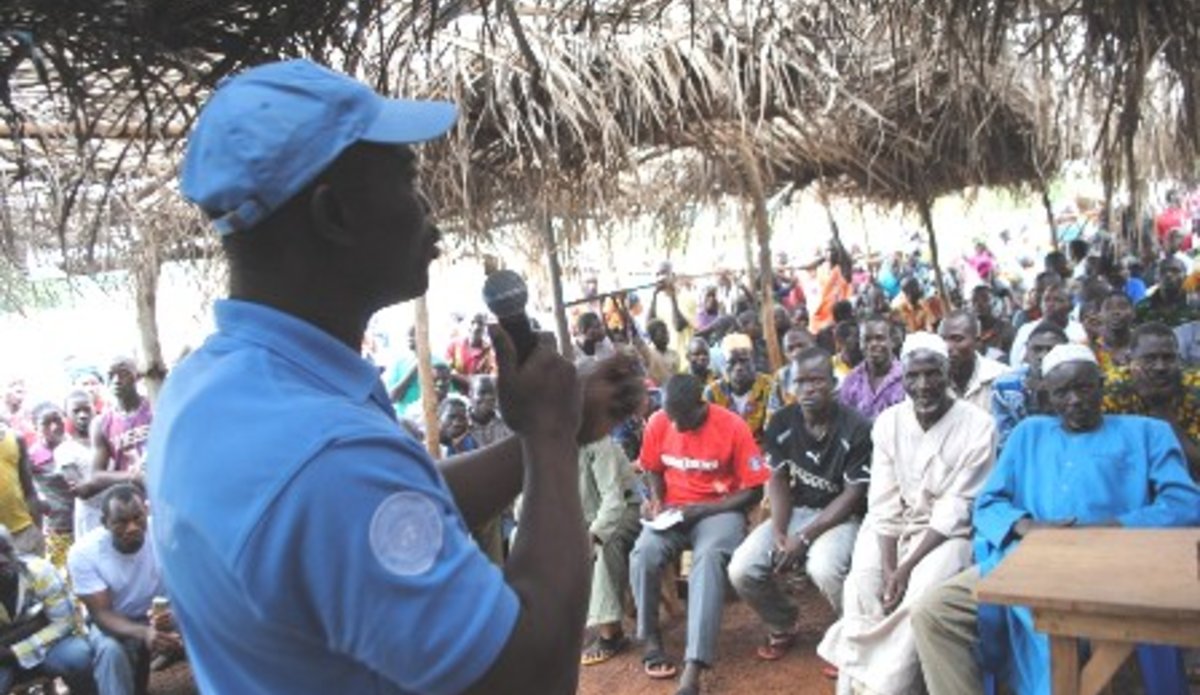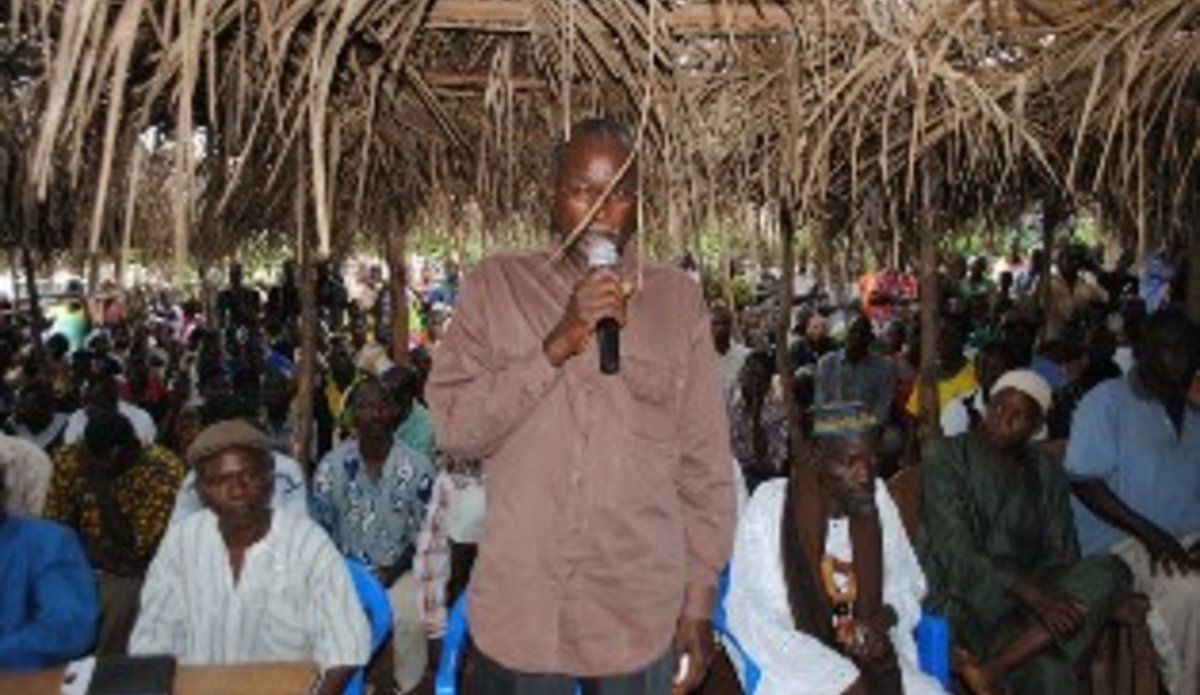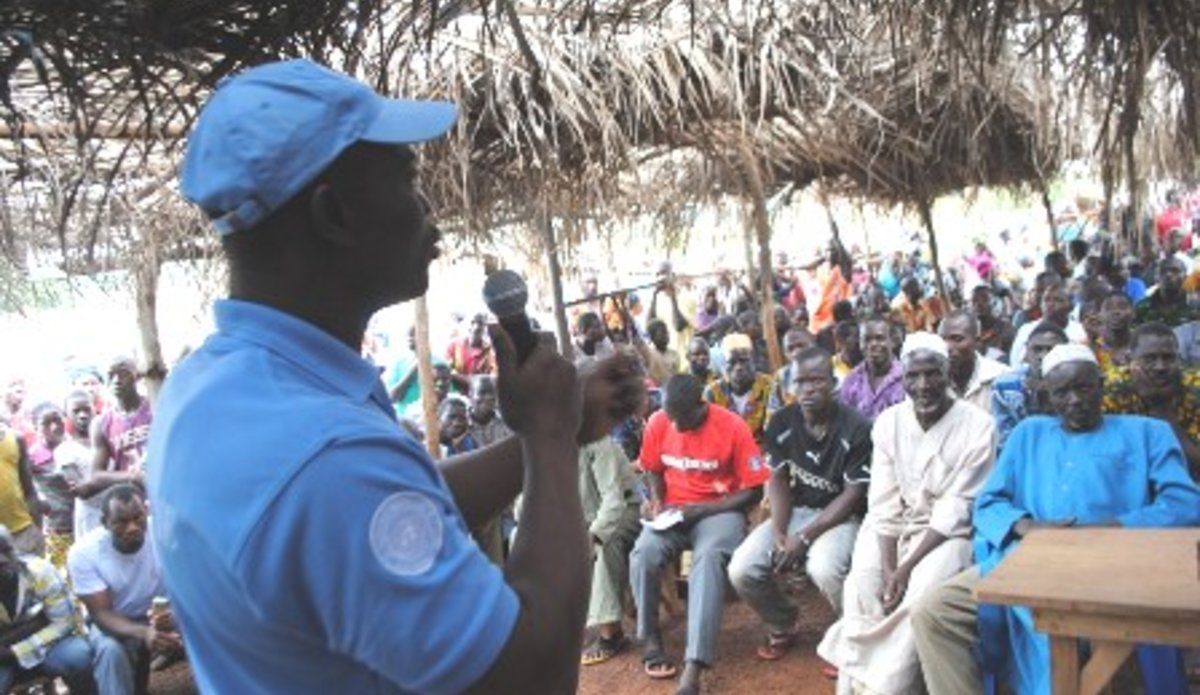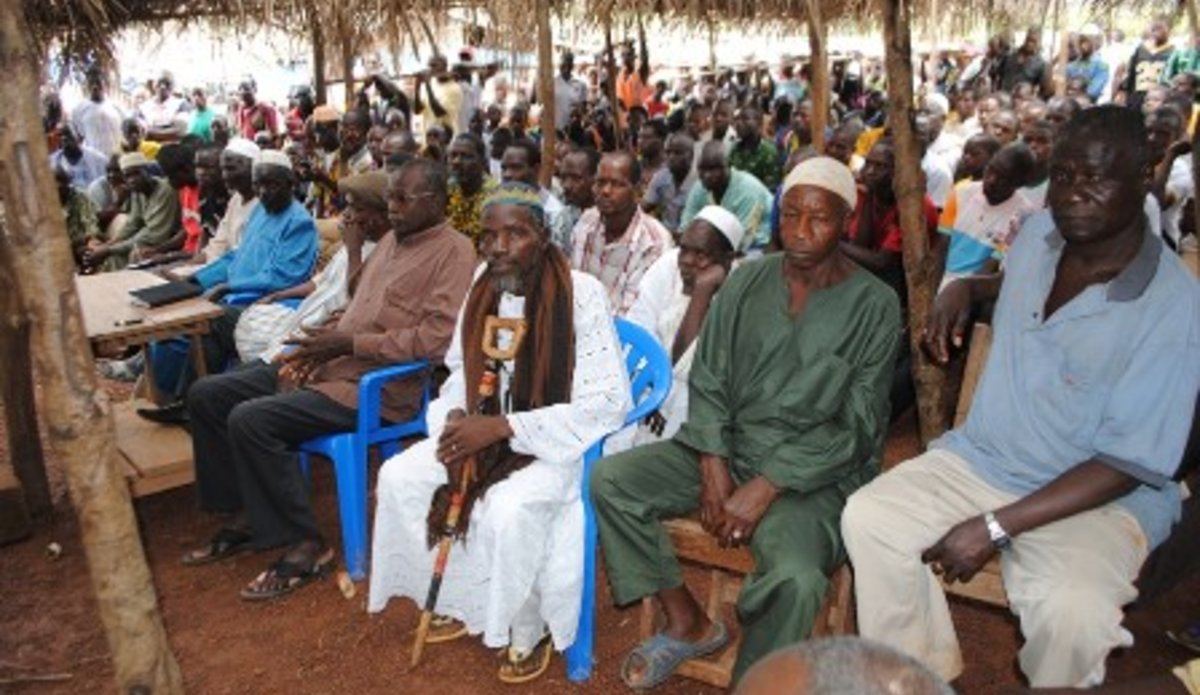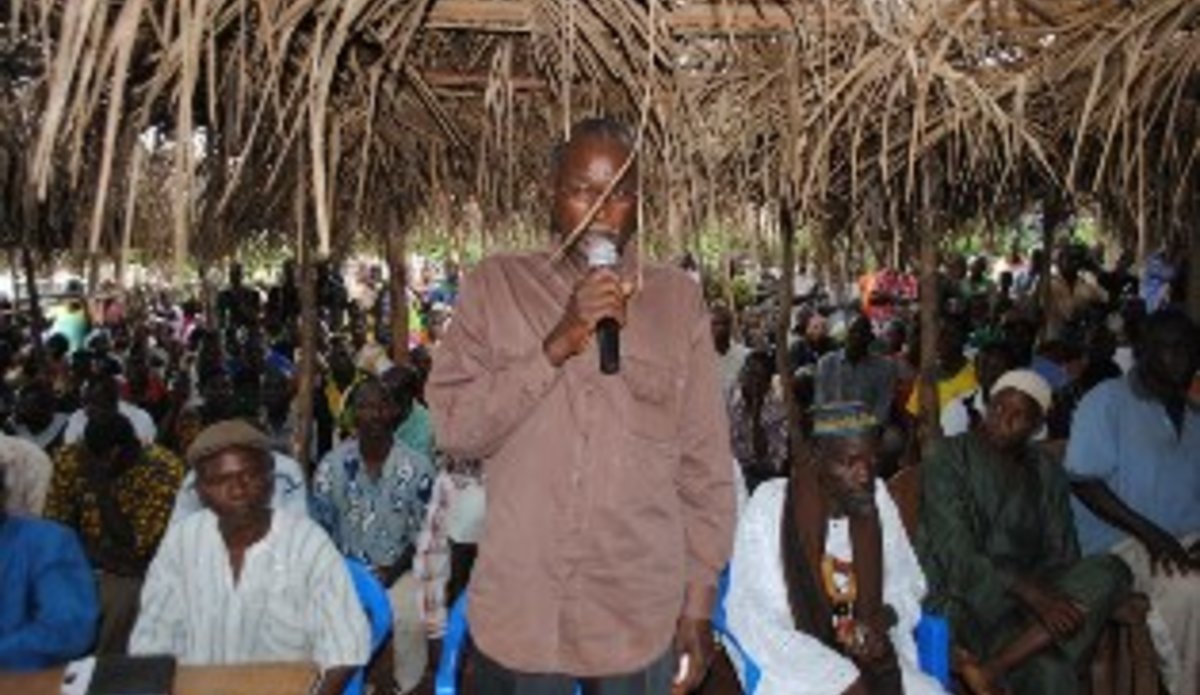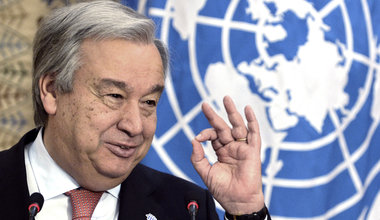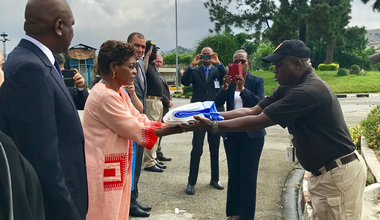UNOCI educates Amadoukro inhabitants on social cohesion and human rights
The UN Operation in Cote d'Ivoire (UNOCI) and its local partners and the Lands and Survey service of the Ivorian Ministry of Agriculture have been sensitizing the population of Amadoukro in Duekoue division (496 km north-east of Abidjan) on social cohesion and human rights.
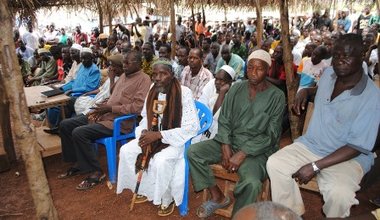
Staff of UNOCI Public Information Office and UN Police discussed their respective mandates in Cote d'Ivoire before engaging the population on issues affecting social cohesion such as gender-based violence and land disputes, the management of rumours and respect of human rights.
Public Information official, Pierre Aby warned against the dangers of female genital excision which is a hindrance to social harmony. « Female genital excision traumatizes its victims and produces serious health consequences as proven by science. This malpractice now constitutes a crime in Cote d'Ivoire, » he said.
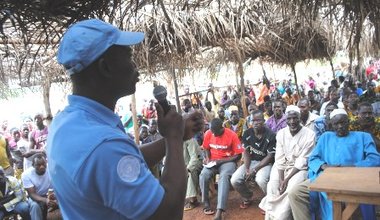
UN Police representative, Dramane Raoufou called on the population to cooperate with the police in matters of security, urging them to report cases of crime or run the risk of becoming victims tomorrow. « Abolish the practice of forced marriages,» he advised. He called on them to register the birth of children at the civil registry in order to facilitate their future enrolment in school.
The representative of the NGO , Jonas Siekpo called on the population to respect the village chief irrespective of their political affiliations. « Dialogue begins at home before reaching the plantations and public place, » he asserted.
The Chief of Lands and Survey service, Teya Koffi remarked that the people of Duekoe have been divided over land problems. « Only the law of 1998 that has been enacted should serve as means of resolving any misunderstandings,» he advised

The chief of Amadoukro, Gervais Noha said social cohesion in his village was not under threat except for problems related to armed robbery and racketeering by members of the armed forces at checkpoints along the highway. Other concerns include the fragility of school buildings, poor health facilities, the need for potable water and electrification, all of which make life difficult in the village.
 UN
UN United Nations Peacekeeping
United Nations Peacekeeping
